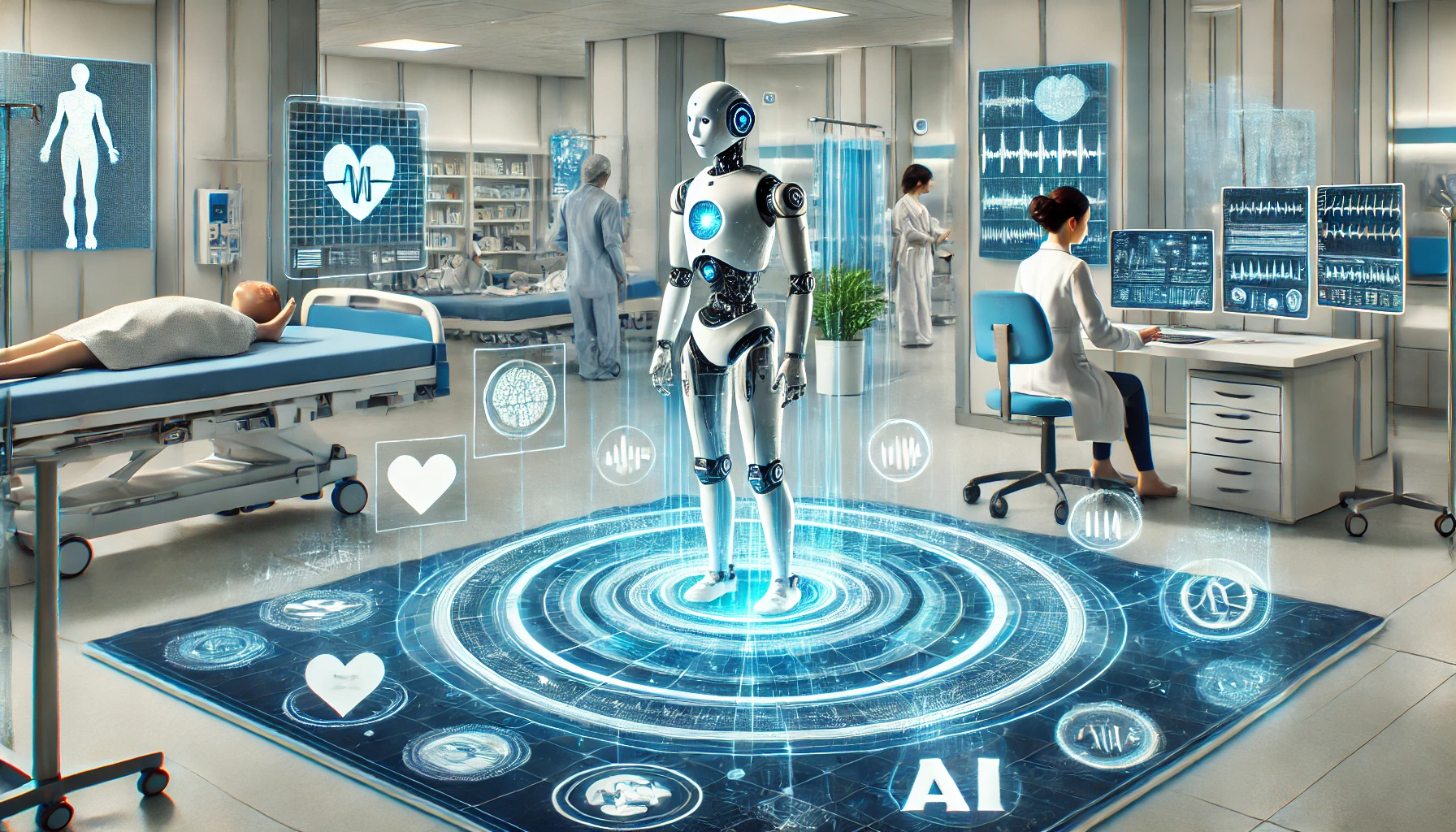In recent years, artificial intelligence (AI) has significantly impacted various industries, and healthcare is no exception. From enhancing diagnostic accuracy to improving patient outcomes, AI is revolutionizing how healthcare is delivered. In this article, we will explore the various ways AI is being utilized in healthcare, its benefits, and the challenges that come with its adoption.
The Evolution of Artificial Intelligence in Healthcare
Early Beginnings
The journey of AI in healthcare began with basic computer algorithms designed to assist in medical diagnoses. Over time, these algorithms evolved into sophisticated systems capable of analyzing vast amounts of data and providing valuable insights.
Modern Applications
Today, AI applications in healthcare are diverse and growing rapidly. They range from predictive analytics and personalized medicine to robotic surgery and virtual health assistants. These technologies are helping healthcare providers offer better and more efficient care.
How AI Enhances Diagnostic Accuracy
Machine Learning and Big Data
One of the most significant contributions of AI to healthcare is its ability to process and analyze large datasets quickly. Machine learning algorithms can identify patterns in medical data that might be missed by human eyes, leading to earlier and more accurate diagnoses.
Examples of AI in Diagnostics
- Medical Imaging: AI systems are used to interpret medical images such as X-rays, MRIs, and CT scans. These systems can detect abnormalities with a high degree of accuracy, sometimes even surpassing human radiologists.
- Genomic Analysis: AI helps in analyzing genetic data to identify potential health risks and personalize treatment plans based on an individual’s genetic makeup.
- Electronic Health Records (EHR): AI algorithms can sift through EHRs to identify trends and predict potential health issues before they become critical.
AI in Personalized Medicine
Tailoring Treatments to Individual Needs
Personalized medicine involves customizing healthcare treatments to the individual characteristics of each patient. AI plays a crucial role in this by analyzing data from various sources, including genetic information, lifestyle factors, and previous medical history.
Benefits of Personalized Medicine
- Improved Treatment Efficacy: By tailoring treatments to individual patients, healthcare providers can improve the efficacy of interventions.
- Reduced Side Effects: Personalized treatments are designed to minimize adverse reactions, leading to better patient outcomes.
- Cost-Effectiveness: Customizing treatments can reduce unnecessary tests and procedures, ultimately saving costs for both patients and healthcare systems.
AI-Powered Robotic Surgery
Precision and Minimally Invasive Procedures
Robotic surgery is another area where AI is making significant strides. AI-powered surgical robots can perform complex procedures with greater precision and control than human surgeons.
Advantages of Robotic Surgery
- Enhanced Precision: AI algorithms help guide surgical instruments with high accuracy, reducing the risk of human error.
- Minimally Invasive: Robotic surgery often involves smaller incisions, leading to shorter recovery times and less postoperative pain.
- Consistent Performance: Robots do not tire, ensuring consistent performance throughout lengthy procedures.
Virtual Health Assistants
Improving Access to Healthcare
Virtual health assistants, powered by AI, are transforming how patients interact with healthcare providers. These assistants can provide medical advice, schedule appointments, and even monitor patients’ health remotely.
Features of Virtual Health Assistants
- 24/7 Availability: Virtual assistants are available around the clock, providing timely support to patients.
- Personalized Interaction: AI enables these assistants to offer personalized advice based on the patient’s medical history and current symptoms.
- Remote Monitoring: Virtual assistants can monitor patients’ health data in real-time, alerting healthcare providers to potential issues before they escalate.
The Future of Artificial Intelligence in Healthcare Delivery
The future of AI in healthcare looks promising, with ongoing advancements expected to bring even more innovative solutions. Integrating AI into healthcare delivery not only enhances the quality of care but also makes healthcare services more accessible and affordable. As AI technology continues to evolve, it will play an increasingly vital role in shaping the future of healthcare.
Challenges and Ethical Considerations
Data Privacy and Security
While AI offers numerous benefits, it also raises concerns about data privacy and security. Healthcare data is highly sensitive, and ensuring its protection is paramount.
Strategies for Ensuring Data Security
- Encryption: Encrypting patient data to prevent unauthorized access.
- Access Controls: Implementing strict access controls to ensure that only authorized personnel can access sensitive information.
- Regular Audits: Conducting regular security audits to identify and address potential vulnerabilities.
Ethical Considerations
The use of AI in healthcare also raises ethical questions. Issues such as algorithmic bias, transparency, and patient consent need to be addressed to ensure that AI is used responsibly.
Addressing Ethical Challenges
- Bias Mitigation: Developing algorithms that are free from bias and ensuring diverse training data.
- Transparency: Making AI systems transparent so that patients and providers understand how decisions are made.
- Informed Consent: Ensuring that patients are fully informed about how AI is being used in their care and obtaining their consent.
Conclusion
Artificial intelligence is transforming healthcare delivery, offering numerous benefits such as enhanced diagnostic accuracy, personalized medicine, and improved patient outcomes. However, it also brings challenges that must be addressed to ensure its responsible use. As we continue to explore the role of AI in healthcare, it is crucial to balance innovation with ethical considerations to create a healthcare system that is both effective and equitable.
In summary, artificial intelligence is poised to revolutionize healthcare, making it more efficient, personalized, and accessible. By addressing the challenges and leveraging the benefits, we can harness the power of AI to improve healthcare delivery and patient outcomes.
